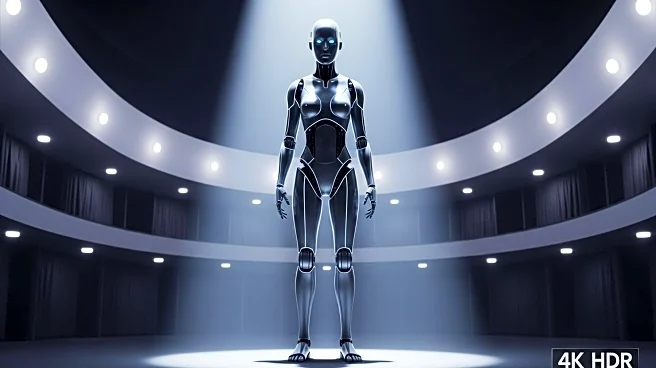What's Happening?
The Screen Actors Guild-American Federation of Television and Radio Artists (SAG-AFTRA) has expressed strong opposition to the emergence of Tilly Norwood, an AI-generated actress. This development has sparked significant controversy in Hollywood, with many actors and industry professionals voicing their concerns. Tilly Norwood, a synthetic performer created by a computer program, has attracted interest from talent agents, raising fears about the potential replacement of human actors. SAG-AFTRA, which has previously highlighted AI use as a critical issue, released a statement condemning the use of AI-generated performers, emphasizing that creativity should remain human-centered. The union argues that such technology undermines the livelihoods of human performers and devalues their artistry.
Why It's Important?
The introduction of AI-generated performers like Tilly Norwood poses a significant threat to the traditional entertainment industry. If AI actors become more prevalent, it could lead to reduced opportunities for human actors, impacting their careers and income. This development also raises ethical concerns about the use of AI in creative fields, particularly regarding the unauthorized use of human performances to train AI models. The backlash from SAG-AFTRA and prominent actors highlights the industry's resistance to this technological shift, emphasizing the importance of preserving human creativity and connection in entertainment.
What's Next?
The controversy surrounding AI-generated performers is likely to intensify as more studios explore similar projects. SAG-AFTRA and other industry stakeholders may push for stricter regulations and contractual obligations to protect human actors. Talent agencies and production companies will need to navigate the ethical and legal implications of using AI in their projects. The ongoing debate could lead to broader discussions about the role of AI in creative industries and the need for policies that balance innovation with the protection of human talent.












